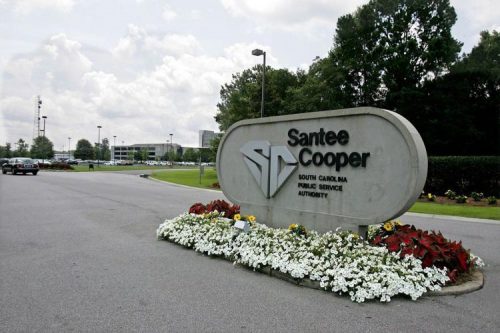Opinion: It’s time for SC to take a ‘business approach’ to Santee Cooper
This article was originally published in The Greenville News.
To many of my fellow South Carolinians, I am known for my years as an elected official, first in the US House of Representatives, then the US Senate.
But before my tenure in Washington—for more than 20 years—I was the full-time CEO of a small business. Those years were tough at times as I worked to recruit clients and meet payrolls, but it was that hard-knocks business experience that informed my views when I went to Washington. Factoring in the legal and financial aspects of a public policy question became second nature to me in Congress because I had lived them.
The smokescreen of political talking points in DC on more than one occasion dissipated easily as I immediately grasped the bottom line. Many times, this made me unpopular. But I just could not ignore indisputable facts because some powerful person or entity didn’t like those facts.
This is the situation I feel we are in right now in the matter of Santee Cooper, the South Carolina Public Service Authority. Santee Cooper is the state agency that, along with SCE&G, announced on July 31, 2017, that the two were pulling the plug on expansion of the V.C. Summer nuclear station in Fairfield County, with $9 billion spent and only a hole in the ground to show for ratepayer dollars squandered.
No business leader I have consulted thinks it is smart fiscal policy for the South Carolina General Assembly to allow Santee Cooper to continue to operate as a small, government-owned, politicized, debt-ridden, unaccountable utility.
A fair-minded reading of Santee Cooper’s balance sheet practically shouts the story: No rejiggering of debt or misplaced nostalgia for the old days will alleviate the $6.8 billion mountain of debt from the backs of ratepayers. The world has simply passed Santee Cooper’s outdated business model by. It has been over a year since the opening bid for Santee Cooper was submitted. It is time to drive a hard bargain and sell, for the long-term financial benefit of our state.
Does this mean we must—or should—accept any buyer’s first offer or no offer at all? Is selling Santee Cooper now somehow inevitably going to be a “fire sale”? Hardly.
Opponents of sale deploy this “straw man” argument, alleging that advocating for sale means “sell at any price.” That kind of reductionism is just silly. As with any business transaction, our goal must be to get the best deal possible for South Carolina.
That deal must also include totally eliminating current debt from future power bills of Santee Cooper customers. Opponents of a sale argue that a buyer would find a way to charge customers for that debt, but that should not be allowed. There is precedent. When Dominion Energy purchased SC Electric & Gas in 2019, it agreed with Public Service Commission (PSC) regulators to absorb billions in SCE&G nuclear debt, taking it off the backs of customers.
All these finer points of litigation, legislation, debt and rates must remain on the negotiating table. But, for over a year, there has been no negotiating.
I am so convinced of the simple truth and power of these facts, that maybe I should rest my case. But I need to get back to the “smokescreens” I mentioned earlier.
Efforts to analyze Santee Cooper have frustrated utility experts and government agency staff alike. One privately described Santee Cooper as its “own judge and jury.” Certainly, no investor-owned utility (IOU) would be allowed to operate with so little oversight or real transparency.
In a well-documented analysis released Sept., 24, Palmetto Promise Institute’s economist took a business approach to Santee Cooper’s own publicly reported numbers to get to the bottom line of what South Carolina policymakers need to know: Can Santee Cooper simultaneously afford to invest in needed capital expenditures, freeze electricity rates, and pay rebates required by the terms of a ratepayer lawsuit over its V.C. Summer debacle?
An objective analysis of its self-reported balance sheet yielded a definitive “no” to that question.
And a mere 34 days later, on Oct. 28, 2020, the analysis proved true: Santee Cooper announced that it had borrowed $100 million for capital expenditures as a part of a swap in the refinancing of its bonds. The legislature was clearly taken by surprise.
Now, according to proceedings of the agency’s most recent board meeting, an additional $100 million may be required before the end of 2021.
Lawmakers and regulators dealt decisively with SCE&G for its role in the V.C. Summer debacle, resulting in its eventual sale. That kind of basic accountability has yet to be meaningfully applied to state-owned Santee Cooper.
Perhaps 2021 is the year the General Assembly will finally take a business approach —rather than a political approach — to Santee Cooper. For the sake of beleaguered ratepayers (and taxpayers), I hope we are back at the negotiating table soon.
Jim DeMint is a former business owner, retired US senator from South Carolina, and the founding chairman of Palmetto Promise Institute.







